Healthcare Applications and Simulation
ADHRI develops context-appropriate software applications and therapeutic simulations tailored to African health systems needs.

Healthcare applications and simulations are valuable tools that leverage technology to enhance various aspects of healthcare, from patient care and medical training to research and system optimization. Here's an overview of healthcare applications and simulations:
Healthcare Applications:
Electronic Health Records (EHRs): EHR applications digitize patient medical records, making them easily accessible to healthcare providers for patient care, documentation, and data analysis. They enhance the accuracy and efficiency of healthcare administration.
Telehealth and Telemedicine Apps: Telehealth applications enable remote consultations between patients and healthcare providers through video calls, chat, or phone. These apps have become particularly important during health crises, enabling access to care from home.
Health and Wellness Apps: These apps help users monitor their health, track fitness goals, and manage chronic conditions. Examples include fitness trackers, diet apps, and medication reminder apps.
Medical Imaging Software: Applications for medical imaging, like PACS (Picture Archiving and Communication Systems) and DICOM (Digital Imaging and Communications in Medicine) viewers, allow healthcare professionals to view, analyze, and share medical images such as X-rays, MRIs, and CT scans.
Clinical Decision Support Systems (CDSS): CDSS applications provide healthcare providers with evidence-based recommendations, patient data analysis, and alerts to assist in clinical decision-making and diagnosis.
Medication Management Apps: These apps help patients and healthcare providers manage medications, including dosage reminders and drug interaction checks.
Healthcare Analytics and Data Visualization Tools: Applications for data analysis and visualization help healthcare organizations gain insights from large datasets, identify trends, and make data-driven decisions for patient care and operations.
Healthcare Simulations:
Medical Training Simulators: Healthcare simulations offer a safe and realistic environment for medical professionals and students to practice surgical procedures, patient care, and diagnosis. This includes surgical simulators, virtual reality (VR) training, and mannequins with realistic responses.
Clinical Simulations: Clinical simulations mimic real-world patient scenarios, allowing healthcare professionals to develop critical skills, improve teamwork, and enhance communication in a controlled setting.
Patient Simulations: These simulations help healthcare providers understand the patient experience and perspective, promoting empathy and patient-centered care.
Emergency Response Training: Simulations prepare healthcare teams for emergency situations, such as mass casualty incidents or disaster response, by simulating crisis scenarios.
Healthcare System Modeling: Simulations model healthcare systems to optimize resource allocation, predict patient flow, and improve hospital operations, leading to better patient care and cost savings.
Disease Modeling: Disease simulations and epidemiological models help researchers and public health officials study the spread of diseases, plan interventions, and assess the impact of healthcare policies.
Healthcare applications and simulations contribute to improved patient care, enhanced medical education, better decision-making, and innovation in the healthcare sector. They are essential tools for addressing healthcare challenges and advancing the quality and accessibility of healthcare services.
The African Digital Health Research Institute (ADHRI) builds accessible applications and therapeutic simulations designed specifically for African healthcare ecosystems.
ADHRI's software engineers and developers design mobile and web apps focused on:
- Public health surveillance and outbreak prediction.
- Health worker decision support and peer learning.
- Patient self-management and virtual assistants.
- Provider training through augmented reality simulations.
These targeted applications transform health data into actionable insights. ADHRI employs user-centered design and rapid iterative development to create fit-for-purpose solutions.
By localizing applications to address healthcare pain points in Africa, ADHRI aims to improve health outcomes through appropriate digital transformation.
